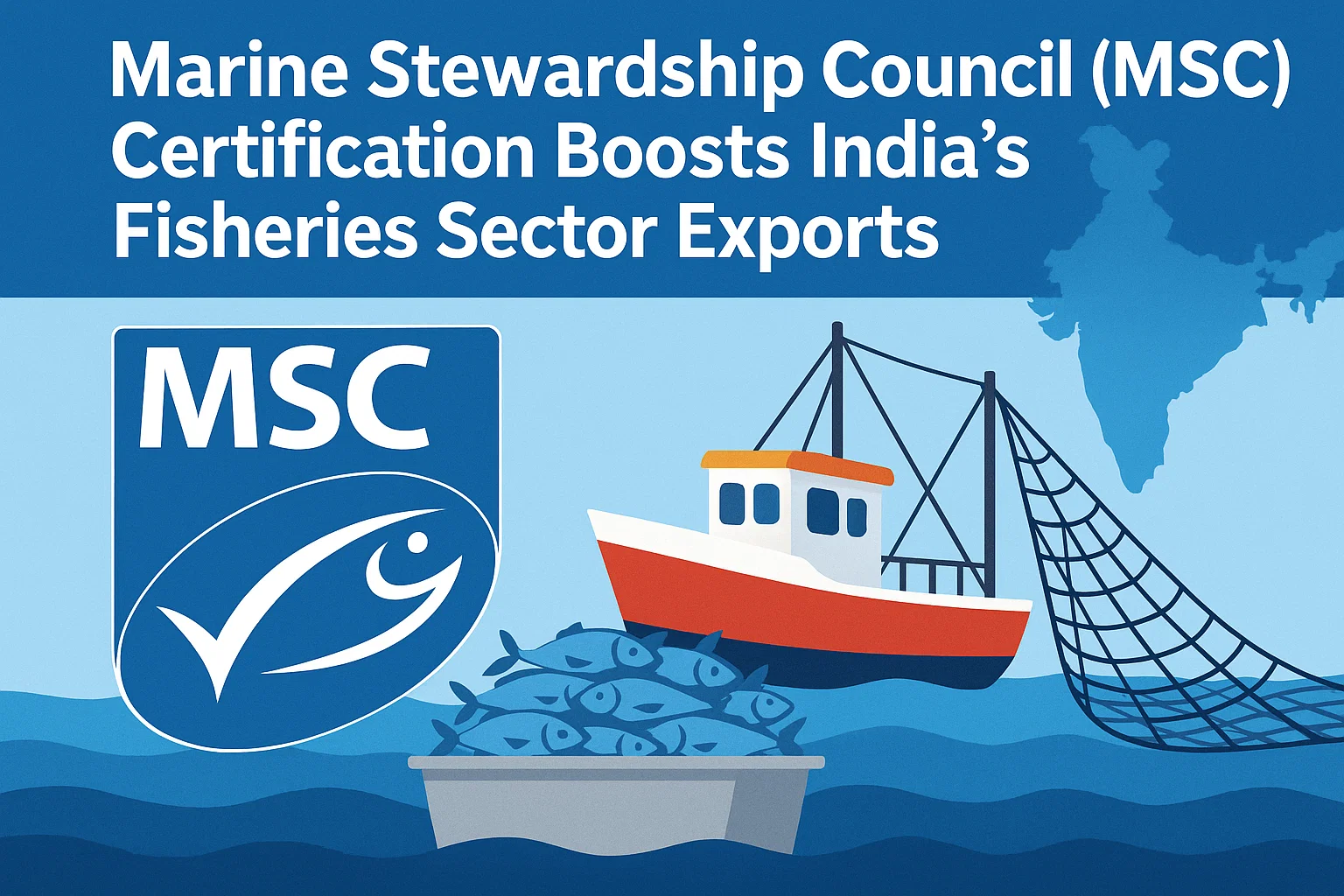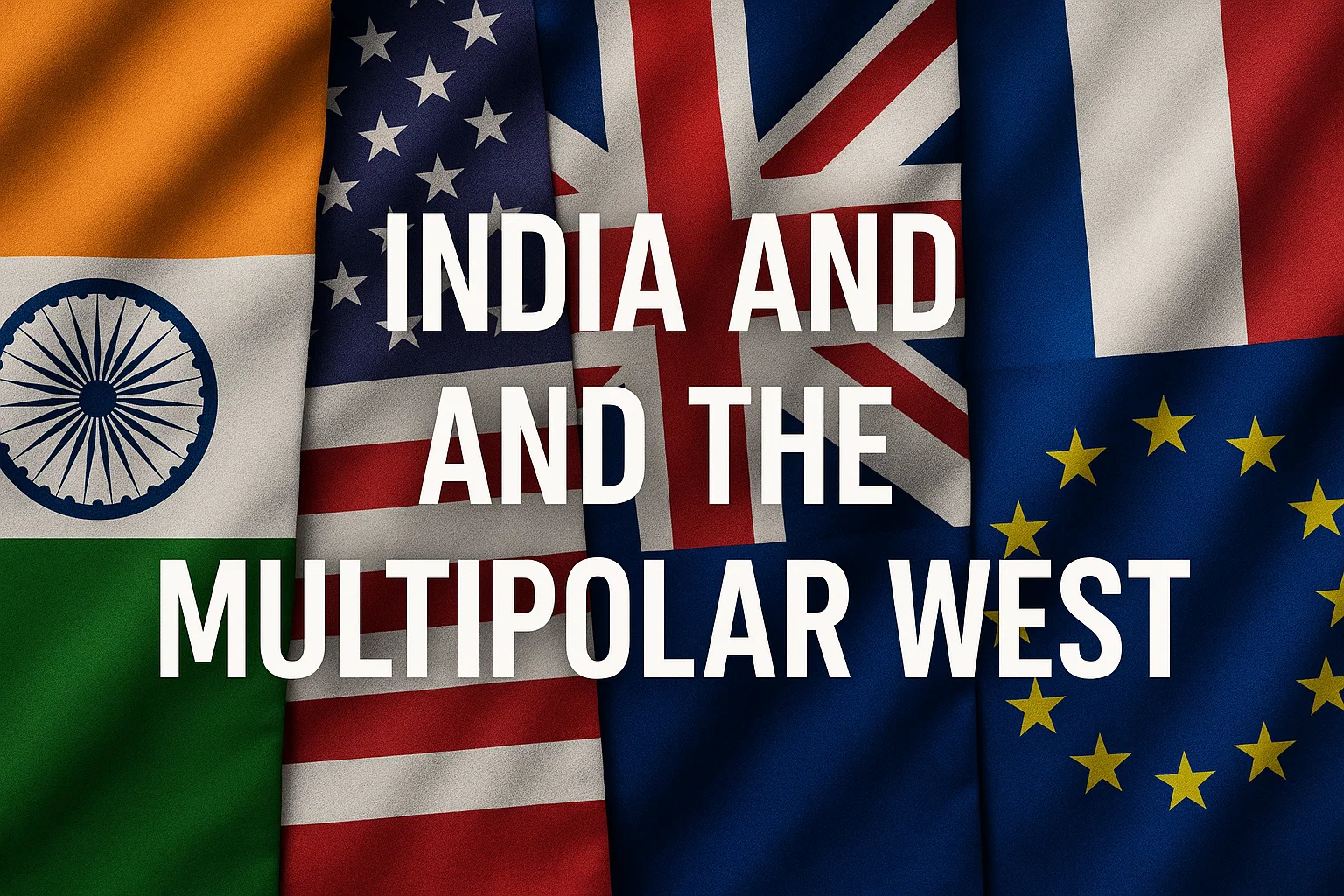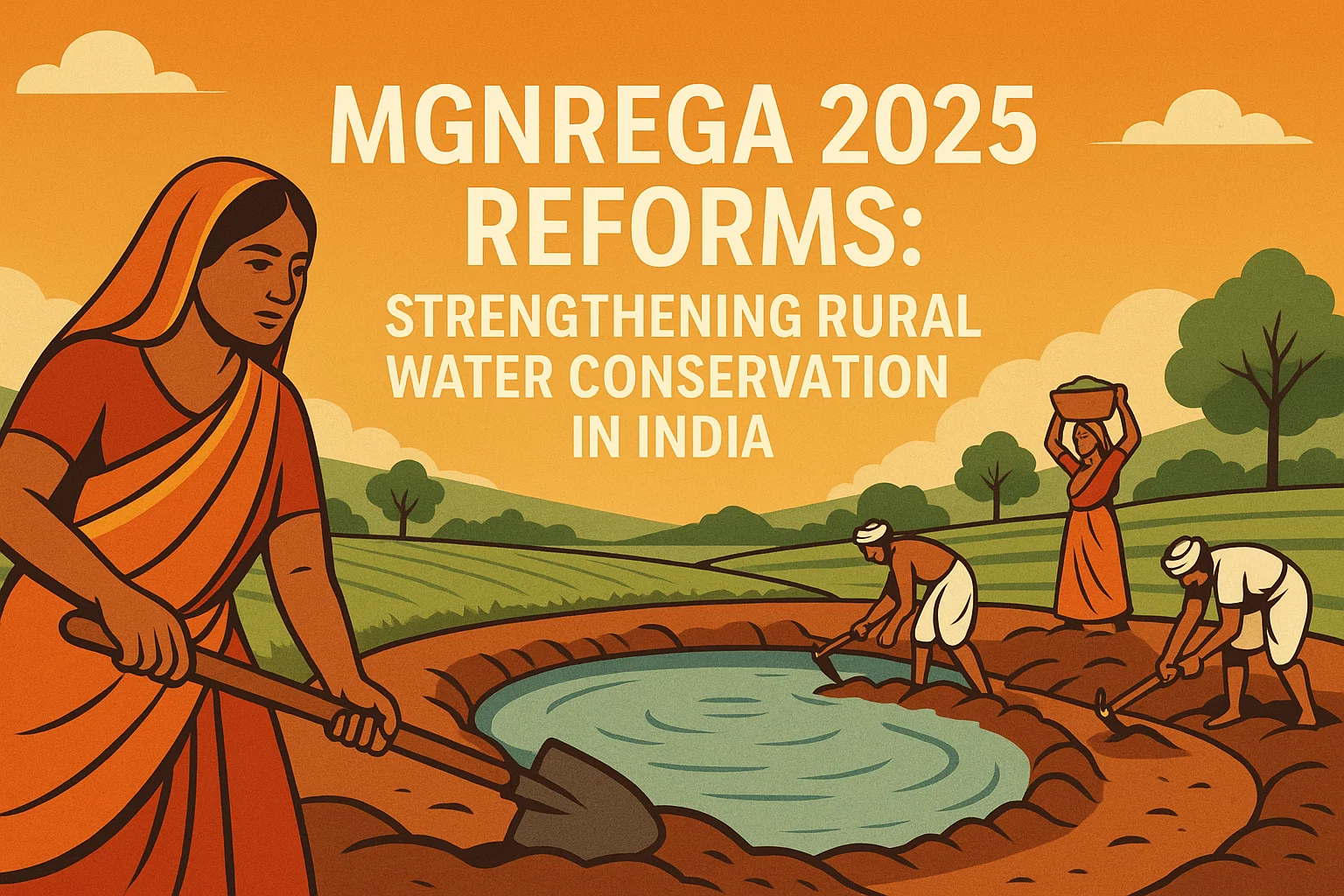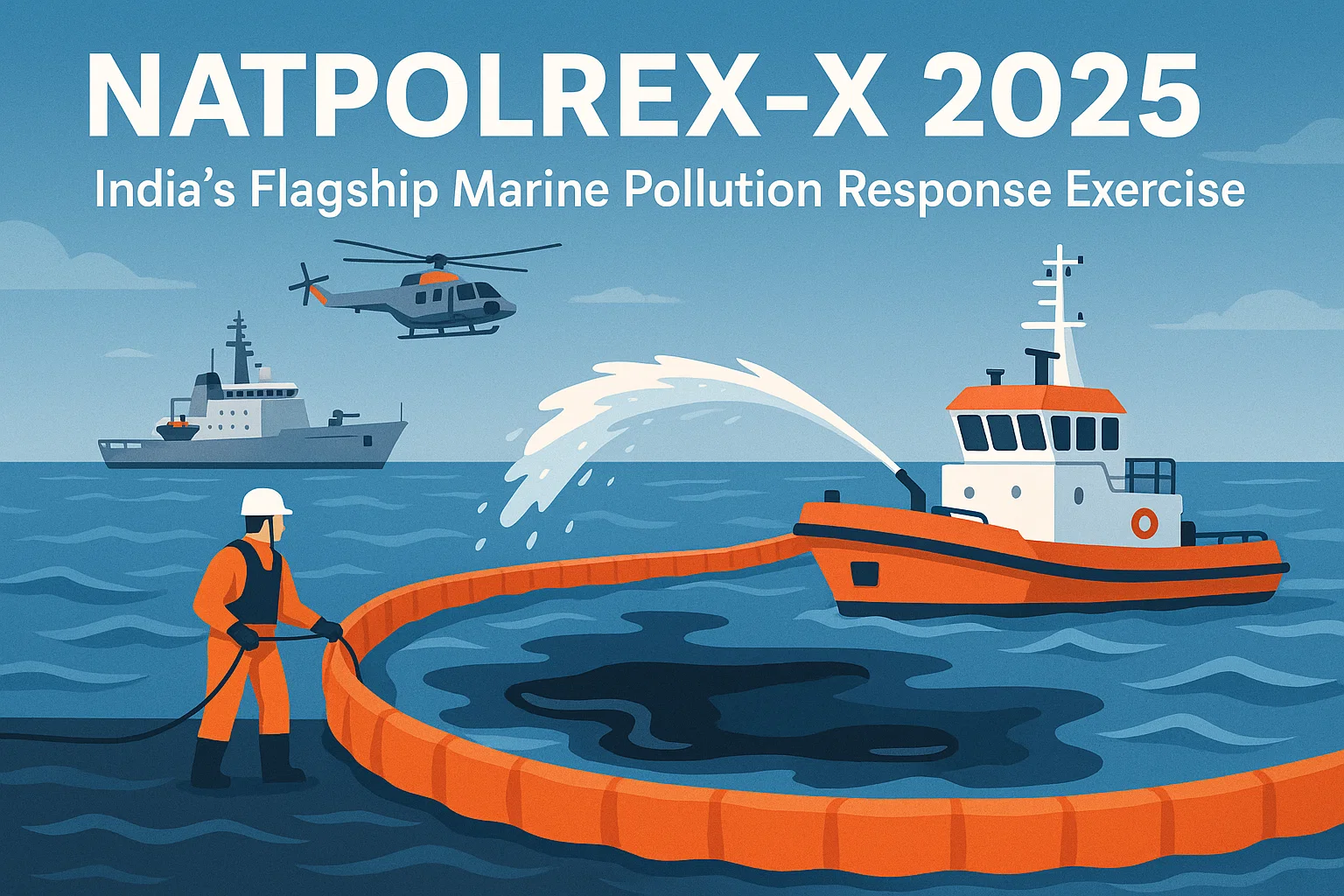Marine Stewardship Council (MSC) Certification
India’s fisheries sector targets global markets with MSC certification for fish and shrimp varieties. Learn how sustainable fishing, government support, and certification under PMMSY 2.0 enhance exports and ecological balance.
Context
To counter the impact of recent international trade restrictions, India’s fisheries sector is pursuing Marine Stewardship Council (MSC) certification for ten varieties of fish and shrimp. This initiative aims to open new global markets, ensure sustainable fishing practices, and enhance export competitiveness, particularly as the country diversifies beyond traditional destinations such as the United States.
What is Marine Stewardship Council (MSC) Certification?
The Marine Stewardship Council (MSC) is a globally recognised non-profit organisation that promotes sustainable fishing through a science-based certification and ecolabelling programme. Established in 1997, it works with fisheries, retailers, and governments to ensure that seafood is harvested responsibly without harming marine ecosystems.
The MSC certification evaluates fisheries based on three key principles:
-
Sustainable Fish Stocks: Ensuring that fish populations are healthy, productive, and capable of replenishing naturally.
-
Ecosystem Impact: Minimising the ecological footprint of fishing to preserve marine biodiversity.
-
Effective Management: Implementing transparent governance systems, regulatory oversight, and traceability mechanisms to ensure compliance with sustainable fishing standards.
Fisheries that successfully meet these standards are awarded the MSC ecolabel, signalling their adherence to globally accepted sustainability benchmarks. The ecolabel serves as a trust mark for international consumers and importers, particularly in Europe, North America, and East Asia.

How Will MSC Certification Benefit India’s Fisheries Sector?
1. Access to Premium Global Markets
MSC-certified seafood commands a significant price advantage in international markets. Certified fisheries often receive 10% to 45% higher prices than non-certified competitors due to growing global demand for sustainably sourced seafood. For India, which ranks among the world’s top seafood exporters, this certification provides a critical edge in high-value markets such as the European Union, the United Kingdom, and Japan, where sustainability credentials influence consumer choices and import regulations.
2. Diversification of Export Markets
In light of the recent U.S. tariffs and trade restrictions, India is working to expand seafood exports to alternative destinations such as China, Japan, and Southeast Asia. While these markets offer larger volumes, they generally yield lower returns per kilogram compared to the U.S. market. MSC certification can help Indian exporters move up the value chain by positioning their products in premium, sustainability-driven segments of these markets, thereby mitigating losses from traditional trade disruptions.
3. Government Support through PMMSY 2.0
The Government of India, under the Pradhan Mantri Matsya Sampada Yojana (PMMSY) 2.0, is actively supporting fisheries in obtaining MSC certification. The scheme provides financial assistance for scientific stock assessments, training programmes, and third-party sustainability audits. This state-backed facilitation aims to align the sector with international environmental standards while improving livelihoods in coastal communities.
4. Promotion of Sustainable Fishing Practices
MSC certification is not just a trade advantage; it represents a shift towards long-term ecological balance. Several Fisheries Improvement Projects (FIPs) have been initiated to meet certification standards by 2025. These include reducing bycatch, improving gear selectivity, and ensuring compliance with marine biodiversity conservation laws. Such measures help protect the ocean ecosystem while maintaining consistent yields for future generations.
Examples of Indian Fisheries Pursuing MSC Certification
-
Kerala’s Deep-Sea Shrimp and Cephalopod Fisheries: These fisheries are currently implementing improvement projects aimed at achieving MSC certification by 2025. The initiative is being supported by WWF-India, the Marine Products Export Development Authority (MPEDA), and local fishing cooperatives to enhance resource management and traceability.
-
Lakshadweep Tuna Fisheries: The traditional pole-and-line tuna fishery in Lakshadweep, known for its low environmental impact, is also a leading candidate for MSC certification. Its sustainable fishing methods, which avoid overexploitation and reduce bycatch, make it a model for community-based marine conservation.
Conclusion
MSC certification offers India’s fisheries sector a powerful tool to enhance export potential while safeguarding marine ecosystems. By adhering to global sustainability standards, Indian fisheries can secure premium market access, economic resilience, and environmental credibility. With robust government support and collaborative efforts among fishers, NGOs, and regulators, India’s move towards MSC certification signifies a crucial step towards sustainable blue growth — balancing ecological responsibility with economic progress.
Subscribe to our Youtube Channel for more Valuable Content – TheStudyias
Download the App to Subscribe to our Courses – Thestudyias
The Source’s Authority and Ownership of the Article is Claimed By THE STUDY IAS BY MANIKANT SINGH





